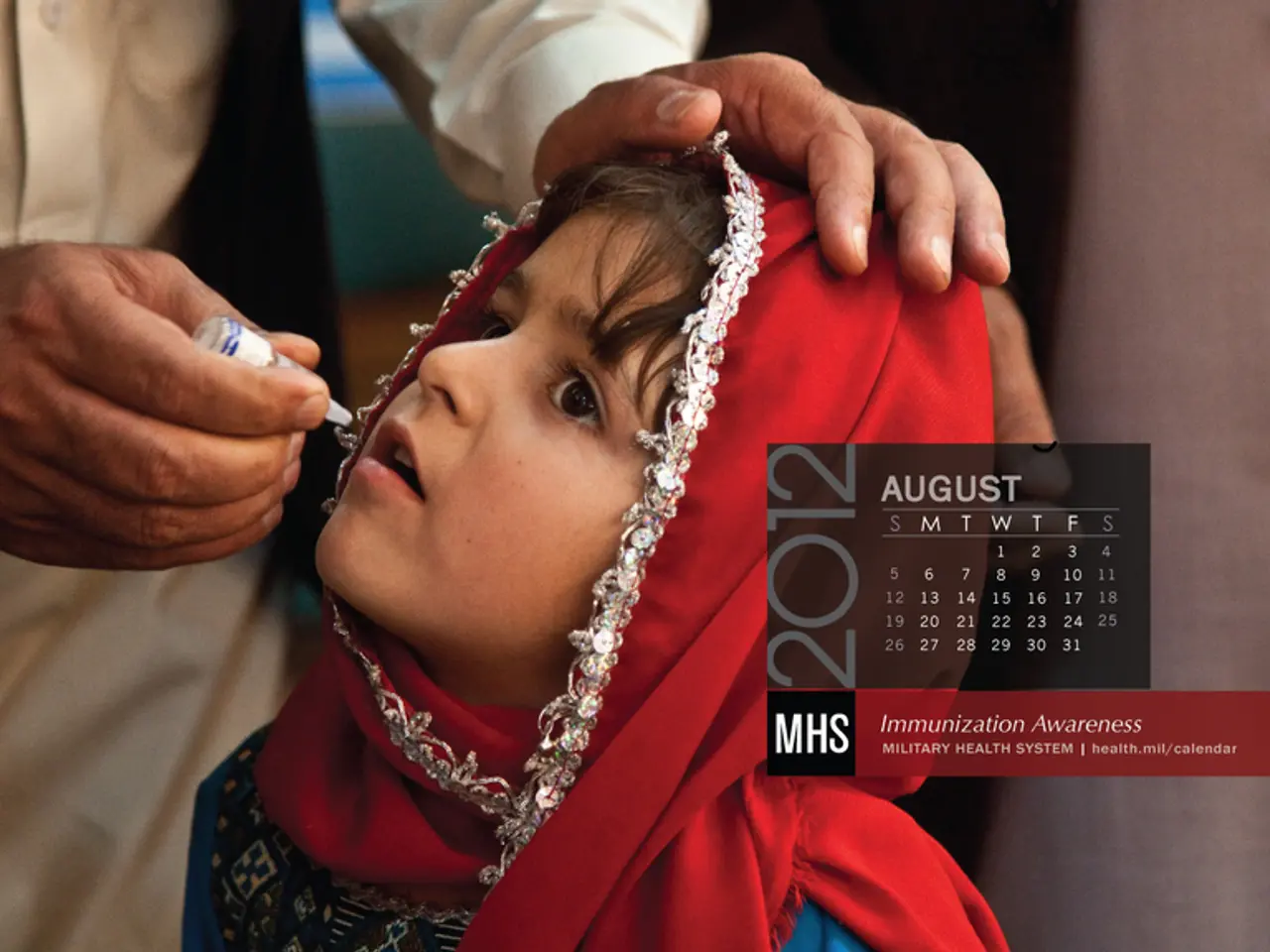Decline in Childhood Vaccination Rates in the U.S. Reaches New Heights with a Spike in Exemptions
Rising Vaccine Exemptions and the Measles Outbreak in the U.S.
The United States is currently experiencing its worst year for measles spread in over three decades, with over 1,300 cases reported so far. This troubling trend is linked to an increase in the number of kindergarteners exempted from vaccinations.
In the last decade, the percentage of kindergartners with nonmedical exemptions has risen steadily, reaching record highs around 3.6% to 4.1% in the 2024-25 school year. This trend is primarily driven by parents withholding vaccinations on nonmedical grounds such as religious, philosophical, or personal belief exemptions, which are allowed in most states.
Several factors contribute to this increase. State policies allowing exemptions, growing vaccine hesitancy due to misinformation and distrust, impacts from the COVID-19 pandemic, and variable local disease risk perception are some of the key contributors.
Public health officials focus on vaccination rates for kindergartners because schools can be germ hotspots and catalysts for community outbreaks. However, in the 2024-25 school year, only 92.5% of kindergartners received their required measles-mumps-rubella shots.
In the same year, Idaho had the highest rate of kindergartners with exemptions to one or more vaccines (15.4%), while Connecticut had the lowest (less than 0.5%). Texas was particularly hard hit by measles this year, with more than half of the cases reported nationally, despite the state passing a law making it easier for parents to get school vaccine exemptions for their kids.
Dr. Sean O'Leary, of the American Academy of Pediatrics, expressed concern about the CDC's messaging that emphasizes personal choice over community protection, and about a further dip in vaccination coverage potentially leading to more measles cases in the coming months.
The CDC's data, which was posted online this year instead of in its flagship publication, the Morbidity and Mortality Weekly Report, emphasized that the decision to vaccinate is a personal one and that vaccination remains the most effective way to protect children from serious diseases like measles and whooping cough.
However, the ambivalent tone in recent vaccination communications may be influenced by figures like U.S. Health Secretary Robert F. Kennedy Jr., a known figure in the anti-vaccine movement. Online misinformation and the political divide around COVID-19 vaccines have led more parents to question routine childhood vaccinations, according to experts.
Despite these challenges, it is crucial to maintain high vaccination rates to protect public health and prevent outbreaks of preventable diseases. All U.S. states and territories require key vaccinations for children attending child care centers and schools, including measles, mumps, polio, tetanus, whooping cough, and chickenpox.
[1] "Vaccine exemptions and kindergarten entry: United States, 2024-25 school year" - Centers for Disease Control and Prevention [2] "Measles outbreaks in the United States: 2024-25" - Centers for Disease Control and Prevention [3] "Vaccine hesitancy and exemptions: a growing concern for public health" - Journal of Public Health Management and Practice
[1] A rise in nonmedical vaccine exemptions among kindergartners has been documented, especially in areas focused on science, health-and-wellness, education-and-self-development, and learning.[2] This trend is attributed to factors such as vaccine hesitancy, misinformation, and policy variations, which have significant implications for the onset and spread of preventable diseases.




